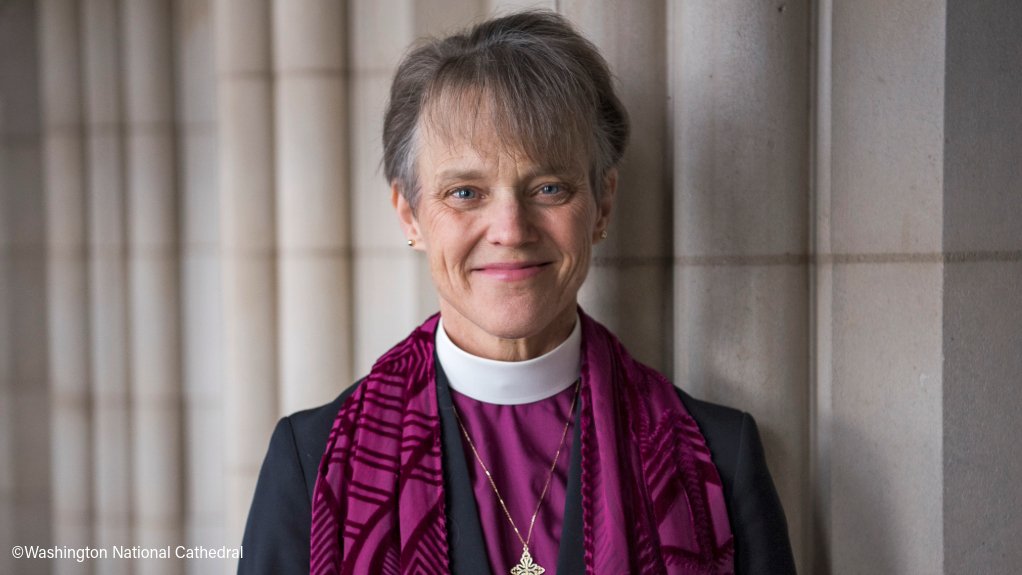The words that the Episcopal Bishop of Washington, Mariann Budde, spoke to President Donald Trump were few, but they carried a powerful message of prophetic confrontation with those in power. They consisted of a humble but firm request for the president to show mercy to the most vulnerable members of society. Her call for compassion is rooted in the fundamental belief that we should be merciful, just as God is merciful to us.
Were Bishop Budde to address the Mining Indaba in Cape Town in February, imbued with that same encounter of God’s compassion, she would undoubtedly call upon the coal mining companies cited in the ongoing coal class action — Glencore, Anglo American, South32, BHP Billiton and Exxaro — to show mercy and compassion to the mine workers who sustained lung disease while working in their South African coal mines.
It seems strange to mention “a business firm” and “compassion” in the same sentence. It is often argued that in the business world, there is no space for compassion. Traditionally the purpose of a business firm is to maximise returns for the shareholders. Showing compassion to other stakeholders does not fit into this grand imperative. But the notion of corporate compassion, while perhaps unfamiliar or even seemingly at odds with traditional business practices, is a concept that we must urgently embrace and discuss more frequently.
For companies cited in the coal class action, demonstrating corporate compassion requires a fundamental shift in perspective. It requires viewing the sick mine workers, who have brought forth the coal class action lawsuit, not solely through the narrow lens of risk management, but also through the expansive moral lens of empathy, care and shared humanity.
When a corporation faces accusations of causing societal harm through its operations, the instinctive response is often that of risk management, and not compassion. Teams of public relations specialists and legal experts are swiftly deployed to minimise liability, and those who have endured grievous injury are coldly viewed as inconvenient obstacles to be eliminated rather than as human beings worthy of empathy and care.
I am sure that, when this risk management approach is applied to the sick miners, we will witness the companies cited in coal class action dehumanizing the sick miners and reducing them to mere objects, risks to be mitigated. Their suffering will be seen solely in terms of financial liability.
One tactic to minimise this liability is to deliberately prolong legal proceedings for years on end, hoping that as more and more mine workers succumb to their illnesses over time, the financial liability and public relations fallout for the company will be diminished. I pray that companies cited in coal class action recognise the moral depravity of this approach and choose a different path — a path of corporate compassion.
If they choose the path of corporate compassion, they could look to the inspiring example set by Maple Leaf Foods in their listeriosis case in Canada. When confronted with allegations of causing societal harm, Maple Leaf Foods took two significant steps. First, it did not object to the certification of the class action. Second, it sought a timely settlement to expedite much-needed compensation to the victims.
This approach illustrates that when the ethics of compassion guide corporate conduct, it does not necessarily jeopardise a company's profitability. Sustainable profitability and corporate compassion to those seeking reparation are not mutually exclusive. They can go hand-in-hand when a company is willing to take ethical responsibility for its actions and do what is right for those it has wronged.
In the words of Pope Francis, compassion as a guiding principle is inextricably linked to the principle of fraternity. Flowing from the prayer of our father, the principle of fraternity affirms that we are all children of the same God, and how we treat one another, especially the most vulnerable, reflects our sense of shared humanity, or the lack thereof. We should therefore show compassion to the most vulnerable in society because we belong to the common human family, with God as the common parent.
The plight of the ailing coal miners involved in the class action lawsuit mirrors the circumstances depicted in the parable of the Good Samaritan. Just as the man in the parable was beaten and left for dead by the roadside, the sick miners have been beaten up by the unfair extractive system and then left for dead. The central question the companies named in the coal class action must answer is: Who is your neighbour? Where is your brother? Where is your sister?
To the companies cited in the coal class action, as we begin 2025, I am therefore compelled to pose the question that God asked Cain in Genesis 4 verse 9: “Where is your brother? Where is your sister? Where are the mine workers who helped you reap vast profits in your coal mines?”
I pray that your answer is not "I do not know. Am I my brother's keeper?" but rather a commitment to corporate compassion, corporate ethical accountability and expedited compensation.
Written by Father Stan Muyebe, director of the Justice and Peace Commission of the Southern African Catholic Bishops’ Conference
EMAIL THIS ARTICLE SAVE THIS ARTICLE ARTICLE ENQUIRY
To subscribe email subscriptions@creamermedia.co.za or click here
To advertise email advertising@creamermedia.co.za or click here











